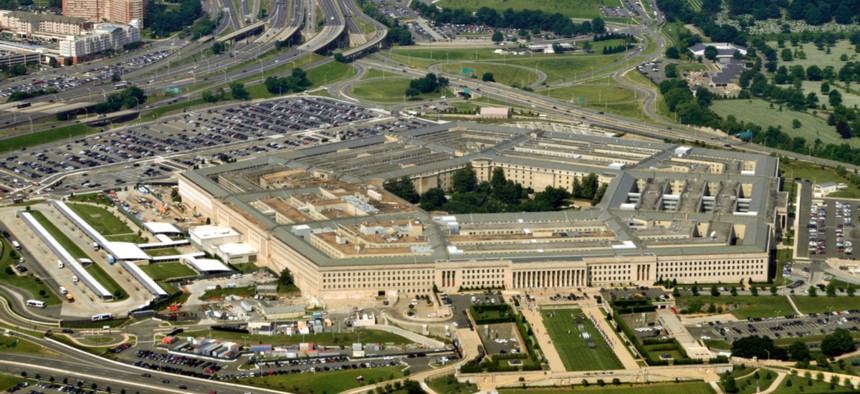Pentagon Wants Cloud Secure Enough to Hold Nuke Secrets

Frontpage/Shutterstock.com
The Pentagon’s JEDI cloud will be designed to store the government’s most sensitive classified information, including nuclear secrets.
The Defense Department’s Joint Enterprise Defense Infrastructure cloud will be designed to host the government’s most sensitive classified data, including critical nuclear weapon design information and other nuclear secrets.
The Pentagon is expected to bid out the controversial JEDI cloud contract this week, and new contracting documents indicate the winning company must be able to obtain the full range of top secret government security clearances, including Department of Energy “Q” and “L” clearances necessary to view restricted nuclear data.
In response to questions from Nextgov, Defense Department spokeswoman Heather Babb confirmed “JEDI cloud services will be offered at all classification levels.” Babb said military and defense customers “will determine which applications and data migrate to the cloud.”
Amazon Web Services, considered a front-runner to win the JEDI contract, is already able to host some Defense Department classified data in a $600 million cloud it developed several years ago for the CIA.
JEDI, however, represents a massive jump in size and scale. The contract could be worth as much as $10 billion over 10 years, with Defense officials describing it as a “global fabric” available to warfighters in almost any environment, from F-35s to war zones. Because government customers could use the cloud for almost anything, it must be built to host almost everything, Steven Aftergood, head of the Federation of American Scientists' Project on Government Secrecy, told Nextgov.
“It sounds to me like the government is covering all their bases,” Aftergood said. “Everything we’ve got might be part of this system, therefore you need to be potentially cleared for everything. And ‘everything’ includes information on weapons systems, operations, intelligence and nuclear weapons.”
Aftergood said the Defense Department’s requirement for individual “Q” clearances for personnel at the contractor that wins JEDI suggests the cloud may be able to “host information pertaining to nuclear weapons or classified information pertaining to the deployment and utilization of nuclear weapons.”
Q clearances originated in the Atomic Energy Act of 1946. They are typically granted to contractors or scientists involved in the management or maintenance of the nuclear weapons complex and national laboratories. Q clearances would be a rarity among employees at the tech companies bidding on JEDI, though Aftergood said investigative requirements can be shortened through “reciprocity” arrangements if contracted personnel have attained similar clearances. Amazon, Google, Microsoft, IBM, Oracle and General Dynamics have indicated interest in JEDI.
The Pentagon has said it plans to award the JEDI contract in September and to begin migrating Pentagon systems early next year. Bloomberg, however, has reported that several companies have vowed to protest the contract and potentially take the Pentagon to court over its decision to award JEDI to a single cloud provider.



